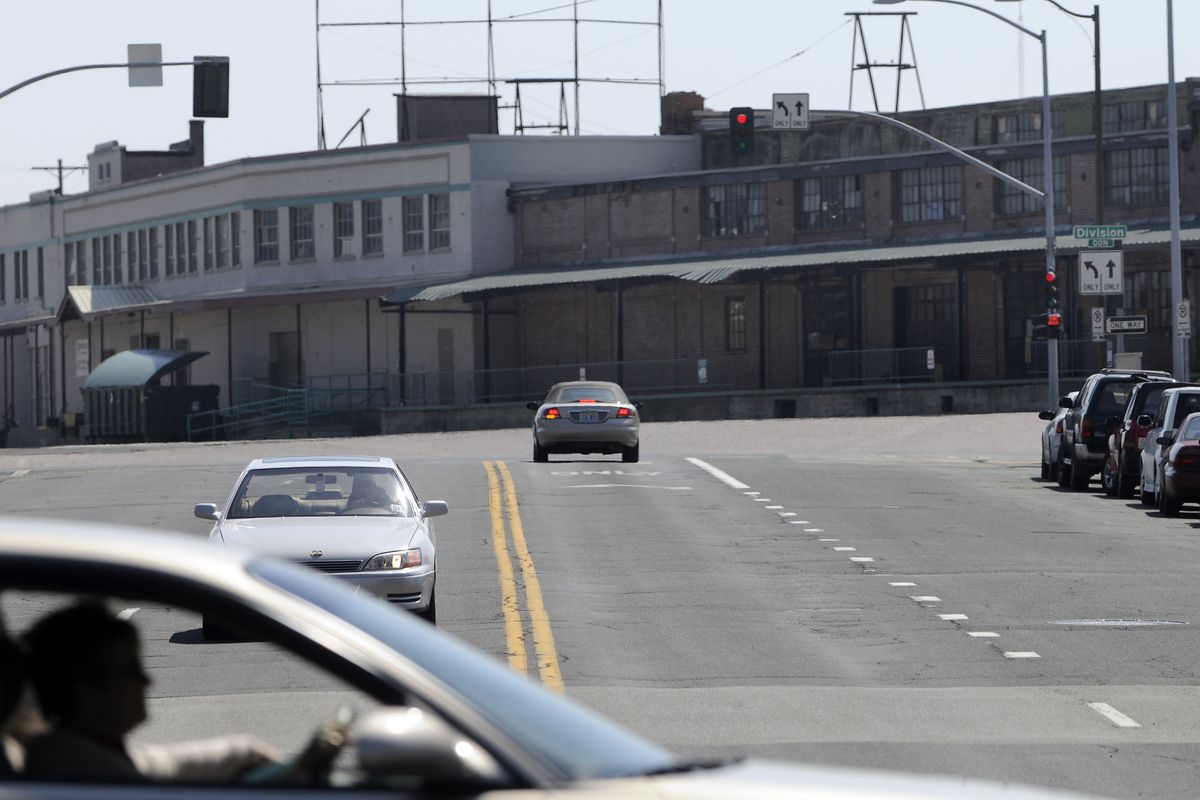Bid to save warehouse fails
Building stands on Riverside extension site

A last-minute attempt to save an 85-year-old warehouse from the wrecking ball has been rejected by city and university leaders.
Last month, developer Dan Spalding, who owns the Longbotham Building, home to the restaurant and lounge Zola and a Rocket Bakery, asked city and Washington State University-Spokane leaders to save a former fruit warehouse that the city plans to demolish when it extends Riverside Avenue from downtown to Trent Avenue.
Construction on the road is expected to start later this year. City and WSU officials said late last month that they would consider Spalding’s proposal. But recently, administrators determined it’s too late to save the warehouse.
Spokane Public Works Director Dave Mandyke said rerouting the path so close to the start of construction and after years of consideration could jeopardize federal funding for the project. The extension of Riverside will be called Martin Luther King Jr. Way.
“It doesn’t seem to be a good place to be in to go back to a funding source and start waffling on them,” Mandyke said.
A federal assessment of the Riverside project looked at routes that could save the warehouses. It found alternatives “not feasible,” partly because going around them would require Sirti, a technology assistance agency, to give up most of its parking. Some historic preservation advocates argue that the city was too quick to reject alternatives and is circumventing its own demolition ordinance, which restricts the demolition of some historic structures.
The buildings in the way of the planned route are a warehouse first used by Western Piggly Wiggly, a grocery chain based in Spokane that eventually became part of Safeway, and the former Pacific Fruit Warehouse.
Spalding had proposed saving the Pacific Fruit building because most it is outside the planned route. He said he found out about the planned demolition late last year.
“It’s unfortunate that we didn’t catch it sooner,” Spalding said.
WSU’s plan for the Pacific Fruit site calls for turning the land into a public plaza.
The University District’s board of directors wrote Spalding this month to inform him they would not support his request.
“The open space provided by the plaza will achieve a strong ‘gateway’ effect by opening up sightlines to the heart of the University District,” said University District project coordinator Brandon Betty in the letter to Spalding.
Spalding said he hopes the debate highlights the need to save buildings, like the warehouses, that may not be fancy but highlight the history of Spokane.
“We’re a mining, rail, blue-collar town,” Spalding said. “We lose too many of these each year.”